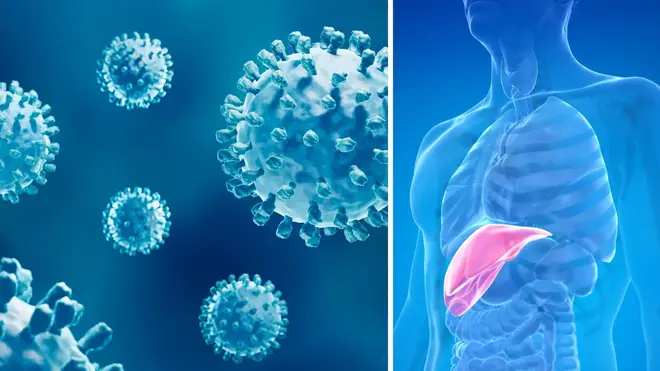
Paul Brand 7am - 10am
25 April 2022, 15:15

At least one child has died and 17 others required liver transplants as a mystery strain of severe hepatitis was reported in 12 countries, the World Health Organization (WHO) has said.
The WHO said it is aware of 169 rare cases of acute hepatitis, an inflammation of the liver, in young children.
The UK has seen the majority of cases, 114, followed by Spain with 13 cases, and Israel with 12.
The outbreak has also spread to the US, Denmark, Ireland, the Netherlands, Italy, France, Norway, Romania and Belgium.
The WHO has not disclosed which country the only known death occurred in.
Read more: Number of hepatitis cases in children rises to 108 as infections continue to surge
The illness has affected young people ranging from one month to 16 years old, since a cluster of cases was identified in Scotland dating from January to mid-April.
The WHO said: "It is not yet clear if there has been an increase in hepatitis cases, or an increase in awareness of hepatitis cases that occur at the expected rate but go undetected."
Richard Pebody, of the WHO European division’s high threats pathogen team, said: “Although the numbers aren’t big, the consequences have been quite severe. It’s important that countries look.”
Scientists currently believe that an adenovirus, a common type of virus that can cause common colds, could be behind the wave of cases. At least 74 of the children affected have tested positive for adenovirus infection.
UK health officials have ruled out Covid jab as a possible cause, with none of the British cases having been vaccinated.
A specialist at Imperial College London told The Telegraph it is "very unusual and rare" for children to suffer severe hepatitis.
The expert, who wished to remain anonymous, said: "The number of cases is exceptional.
"It makes people think there is something unusual going on — such as a virus that has mutated or some other cause. It has sent alarm bells ringing."